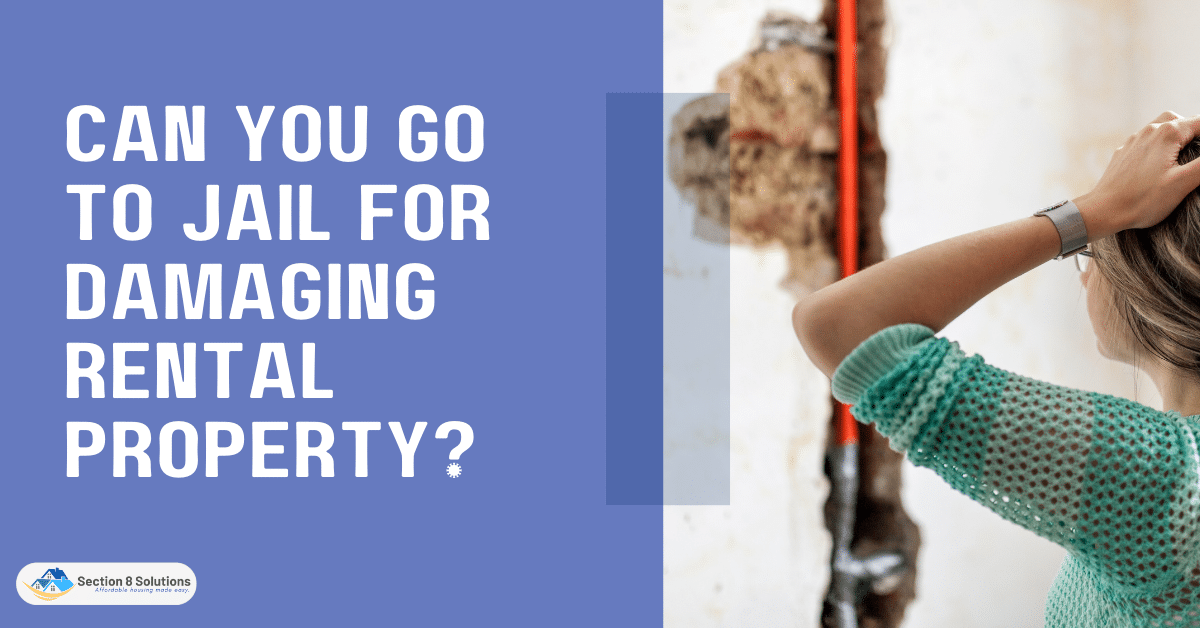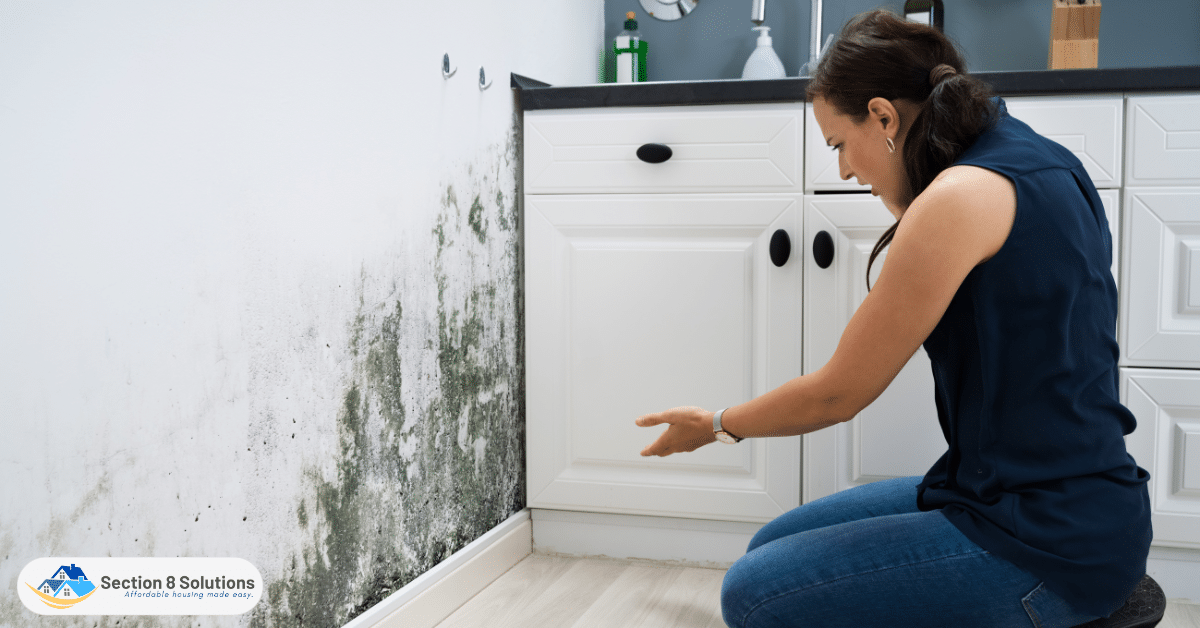Criminal penalties exist if rented property is vandalized. There is a possibility of criminal charges and jail time, depending on the extent of the damage and local legislation. If you create damage, you must pay for it and cooperate with the landlord to fix it.
In this comprehensive article, we will delve into the intricate world of tenant responsibilities and the potential penalties associated with property damage.

Understanding Tenant Responsibilities
As a tenant, it is essential to be aware of your responsibilities in maintaining the rental property. By fulfilling these obligations, you not only contribute to a harmonious landlord-tenant relationship but also reduce the risk of legal consequences.
First and foremost, tenants are responsible for keeping the rental property in a reasonable state of cleanliness. This includes routine cleaning, proper waste disposal, and maintaining a hygienic living environment. Additionally, tenants should promptly address any maintenance issues, such as leaks, faulty appliances, or structural damages, by reporting them to the landlord or property management.
Rental property “normal wear and tear” must be understood. Ordinary usage causes normal wear and tear. Wall scuffs, faded carpets, and fading paint are examples. Landlords usually account for such wear and tear. The landlord is not responsible for carelessness or deliberate damage beyond natural wear and tear.

Civil Liability for Damages
When a tenant causes damage to rental property, they can face potential civil liabilities, which refer to the legal responsibilities and financial obligations they may incur as a result of their actions. Understanding the scope of civil liability is essential for tenants to comprehend the potential consequences of damaging rental property.
Tenants who intentionally or negligently destroy rental property may face legal liability. Intentional damage includes vandalism and breaking fixtures. Negligent damage, on the other hand, is caused by carelessness. Careless appliance usage may cause fires, and ignoring a leak might cause substantial water damage.
The potential civil liabilities a tenant may face can vary depending on the jurisdiction and the specific circumstances of the case. In general, tenants can be held financially responsible for the costs associated with repairing or replacing the damaged property or items within the premises.

Criminal Offenses and Penalties
Criminal mischief is deliberate property damage. It includes graffiti, shattering windows, defacing surfaces, and other property damage. Tenants who destroy rented property may be prosecuted with criminal mischief.

1. Criminal Mischief
Criminal mischief is an offense that involves intentionally damaging or destroying property belonging to another person. It encompasses acts of vandalism, such as graffiti, breaking windows, defacing surfaces, or any other actions that result in harm or destruction of the property. When a tenant engages in such behavior and damages rental property, they may be charged with criminal mischief.
2. Arson
Arson is a grave criminal offense that involves the deliberate act of setting fire to a property. If a tenant intentionally starts a fire that causes damage to the rental property, they may face arson charges. Arson is taken very seriously by the legal system due to its potential for causing harm, destruction, and loss of life. The penalties for arson can be severe and vary depending on the jurisdiction and the circumstances of the case.

3. Burglary or Breaking and Entering
When a renter breaks into a rental property to steal or conduct other crimes, they commit burglary. The legal system takes this violation seriously, and punishments vary based on the circumstances and local legislation.
The key element of burglary or breaking and entering is the intent to commit a crime while inside the property. This crime is not limited to theft alone but may also include acts such as vandalism, assault, or drug-related offenses. The intent to commit any criminal act distinguishes burglary from other forms of unauthorized entry or trespassing.
4. Fraudulent Acts
Destroying rented property to illegally claim insurance or deceive the landlord may result in fraud charges. To claim insurance money, provoking a flood or fire is fraud. Fraud may result in jail, penalties, restitution, and reputation harm.
The severity of the damage, past criminal record, and local legislation determine the penalty for these crimes. Misdemeanor penalties include probation, community service, fines, and short-term incarceration. However, felony charges bring lengthier jail terms, higher fines, and permanent criminal records.

Factors Influencing Legal Consequences
Several variables affect the legal repercussions for harming rented property. These criteria decide fines. Intent, criminal background, and damage inflicted all affect legal penalties.

- Intent: Legal penalties for destroying rented property depend on the purpose. Intentional tenant damage is punished more harshly than accidental or negligent harm. Intent may lead to higher sanctions.
- Previous Criminal Record: A tenant’s criminal background might affect their legal penalties for property damage. Legal processes may examine the tenant’s history of similar acts or damaging conduct. Convictions may increase fines or charges.
- The extent of the Damage: The degree of legal sanctions also depends on the rental property’s damage. Damage value and property effect might affect charges and penalties. More significant damage may result in larger fines or lengthier prison sentences.
These elements may interact and differ depending on local laws and regulations. Based on purpose, past record, or harm, legal systems may set thresholds or criteria for misdemeanor and felony charges.
Mitigation and Resolution
Tenants may reduce legal repercussions and resolve rental property damage issues. First, renters must take responsibility for the damage. Tenants who admit and apologize for their misdeeds may impress landlords and legal authorities.
Such scenarios need a landlord or property management cooperation. Tenants should report the damage immediately and communicate honestly. A desire to collaborate in addressing the problem builds trust and may improve results. Tenants should consult a lawyer in complicated instances or when legal action is imminent. An expert landlord-tenant attorney can guide, defend, and negotiate the legal procedure.
The landlord or property management must be resolved. Discussing repair, settlement, or damage payment options. Tenants may reduce legal implications and regain confidence by really trying to fix the issue.

Conclusion
In conclusion, it is crucial for tenants to understand the legal consequences associated with damaging rental property. By acknowledging responsibility, promptly reporting damages, and taking appropriate measures to prevent legal troubles, tenants can mitigate the severity of the consequences they may face.
Familiarizing oneself with local laws and regulations is essential to ensure a clear understanding of rights and obligations as tenants. By being responsible and proactive, tenants can maintain a positive landlord-tenant relationship and avoid unnecessary legal complications.












